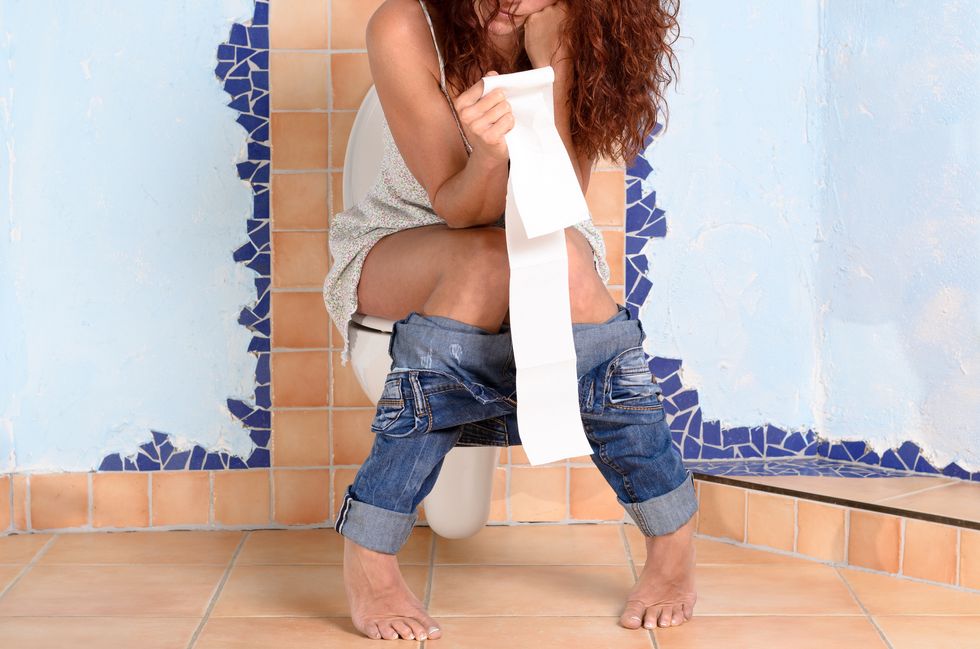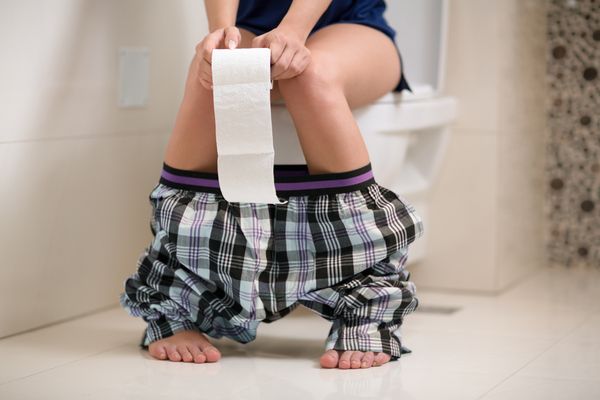There's nothing uncommon about constipation. It's prevalent—and it's mighty annoying.
Occasional constipation happens to all of us. For some, constipation means hard stools or incomplete emptying. That's annoying but usually resolves itself after a day or two.
It's when constipation becomes chronic that it becomes a bigger problem.
From a medical perspective, chronic constipation means having fewer than three bowel movements a week. What happens is this: The food you eat moves too slowly through your digestive tract, giving the colon time to absorb water from that food, creating hard, dry feces that are difficult to pass.
Constipation can loom larger than life. That's why I decided to sit down with the culprit and get the scoop from the source itself. Maybe then, we can conquer the Constipation Curse once and for all.
Q: Why do so many people spend so much time with you?
A: I'm like the Pied Piper of medical conditions! It's estimated that about 19 percent of the population of the United States (or as many as 63 million people) tag along with me. In fact, I'm their top digestive complaint. Pretty impressive and influential for a medical problem that you can't even see.
Q: But you can see it—it's usually written across everyone's face.
A: Ha, I know! I make people really irritable and moody. I mean, how can you possibly smile and act all happy when you're bloated and sluggish? And sometimes, they miss work or don't even go out of the house.
Q: You cost a lot of people a lot of money, too.
A: Yeah, I'm happy to say I'm a top contributor to the cost of health care. I rack up about 2.5 million doctor visits each year. I put a lot of dollars into the drugstore coffers, too, running up medication costs into the hundreds of millions of dollars.
Q: So, tell me: what keeps you so busy?
A: Lots of everyday things like stress, travel, not drinking enough water or getting enough exercise (or really, any change in your daily routine). But you must rule out a medical condition, too.
Q: What types of medical conditions?
A: Things like thyroid issues, irritable bowel syndrome, Parkinson's disease and diabetes. Then there are more serious things like colon or rectal cancers; bowel obstructions or blockages; anal fissures and abdominal cancers that press on the colon, too. And finally, I must confess to being attracted to certain medications (like sedatives, narcotics, some antidepressants and meds to treat high blood pressure).
Q: OK, so let's say we rule out the more serious issues. How can we, er, eliminate you and have better luck in the bathroom?
A: I'll let you in on a secret: Most people aren't getting enough fiber. And that's one big thing that keeps me in business. People need at least 20 to 30 grams each day, but they're falling short and getting only about 15.
Foods like fruits, veggies and whole grains can keep your BMs reliable and right.
Another foe of mine? Mild laxatives. But don't take that last piece of advice lightly. I'd say you should try the lifestyle changes first. Chronic use of laxatives can actually make me worse, and sometimes laxatives can interfere with the way your body absorbs other medications and nutrients.
Q: That's a great tip, thanks. I do know that if people want to increase their fiber intake, it's pretty easy to do. Instead of drinking fruit juices, eat whole fruits. Replace white rice, bread and pasta with brown rice and whole-grain products. Put away your chips, crackers and chocolate bars and snack on raw veggies, instead. And if you aren't already eating beans and legumes, add these to your diet. They can replace meat a couple of days a week (chili and soups are a great opportunity to do so).
A: While we're on great tips, let me help further by saying that there are things other than foods that can help get rid of me. Drink plenty of water—when you're well hydrated, less water will be withdrawn from your colon. Get as much regular exercise as you can. Creating a regular schedule for BMs can keep me away, too. And take advantage of your urge to go. If you ignore it, the moment may pass.
More Reading:
5 Surprising Constipation Triggers
Constipation, Kidney Disease May Be Linked







